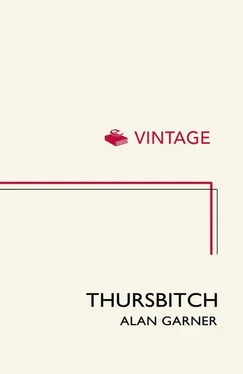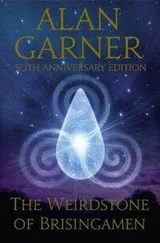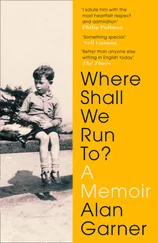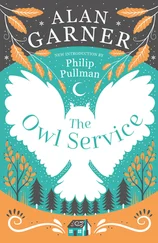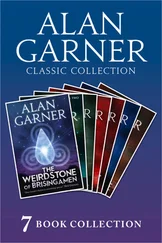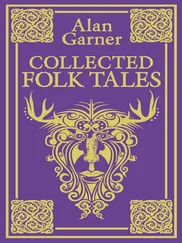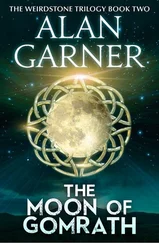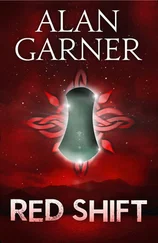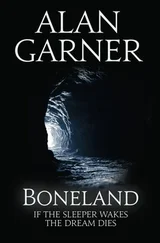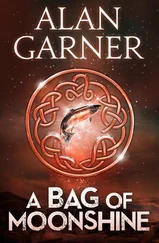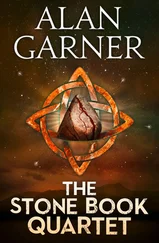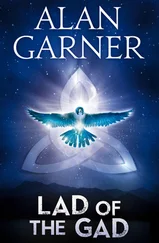“What was the mm?” he said.
“Just an mm.”
“No it wasn’t. Tell me.”
“If you don’t see, you probably can’t be told.”
“Try me.”
“You really haven’t sussed?”
“Sussed what?”
She looked at him, smiled and put her mouth down to the coffee.
“You get places,” she said. “Usually it’s no big deal. This is.”
“I’m not with you.”
“It knows we’re here.”
“Sorry?”
“And we are being watched.”
“Where?”
“In that outcrop.”
He lifted his binoculars. “No one. Look.”
“Pointless,” she said. “I’m fingers and thumbs. But it does know.”
“You’re a scientist.”
“Precisely.”
HE CAME IN, carrying two pails of water on a yoke. He set them down on the brewis floor and went into the houseplace and lifted a bag from above the mantle beam.
“Has a man got to do everything himself?”
“I’ll help,” said Nan Sarah.
“No licking fingers, mind.”
Jack put the bag on the slopstone and drew up the pig bench for them to sit on. Nan Sarah brought a small knife and Jack took his out and wiped it. He opened the bag and sniffed. Then he broke off a cap and nibbled, tasting, and spat it onto the slopstone.
“They’ll do.”
He emptied the bag and spread the toadstools so that he could turn each piece over.
“You take legs,” he said, “and me heads. Cut ’em longroads, but don’t cut ’em too thin, else they’ll go to nowt.We don’t want crumbs.”
They divided the caps from the stems and Nan Sarah began to cut each dry stem lengthwise into four strips. Jack looked closely at every brown cap and cut them into six segments, missing the white warts where he could.
“Ma Mary?”
“What?”
“Fetch us me resounding Thesprotian kettle. It’s in the stable.”
“Where do you want it?” Mary came back with a three-legged iron pot, carrying it by its handle.
“On the slopstone.”
She banged it down and went out to the yard.
Jack and Nan Sarah worked, dropping each piece into the kettle.
“I’ve been thinking,” she said.
“Eh, then.”
“No. I have. About what you said that time. Was it right?”
“Was what right, Nan Sarah?”
“As how your father found you, up Thoon.”
“It’s what he reckons.”
“How old were you?”
“Me belly button had been tied, but it was still wet, he said.”
“And he saw no one?”
“There’s plenty rocks to hide a man.”
“And you weren’t clemmed nor starved?”
“Ah. Now there’s a thing you don’t ask him, Nan Sarah. He told me; but he won’t speak to nobody else. And even me just the once. Mind you, I suppose he could have told me mother; but she never said. And she’ll not now, will she, from where she’s gone?”
“Shall you tell me?” said Nan Sarah.
“I can’t speak for the truth of it. Richard Turner’s been a father to me, and a good father and all. But this here put summat on him. I don’t know what. He said as how, when he found me, like; he said me mouth was covered in bees. He thought they’d stung me to death. But, he said, they weren’t stinging me. They were feeding me. Bees. Then, when they see him, they all fly away into that big crack aback of Thoon; same as it was a nest. That’s what he said.”
“And do you think it’s right?”
“How can I know? But one thing’s for sure. I’ve never had a sting from a bee in all my life. Wasps, yes. But never bees. It feels as if they know; somehow. But I’ll tell you what. And this is summat I’ve never told no one else. I’ve always had this feeling. It’s always in me head, at the back of me mind, as how there’s two of me. Same as if I had another half. And it’s to do wi’ bees.”
They went on with the cutting. Jack brushed the small bits from the slopstone into his hand, even the piece he had tasted, and put them in the kettle and wiped both the knives. He opened the door.
“Ma Mary?”
“What is it now?”
“Last year’s bilberries. Where are they?”
“Hanging in the shippon. Are you too idle to get ’em? Because I can’t reach.”
“Oh, thee hoe thy taters,” said Jack.
He held a linen bag, blotched purple.
“They’ve lasted well,” he said. “Neither wet nor dry.”
He put the mouth of the bag into the pot and tipped the berries in. Then he took one of the pails and poured the water over. The other pail he set aside. “See as yon’s not touched, agen we need a drop more.”
“It’s just water, Jack.”
“You know better, Nan Sarah. That water’s been fetched.”
“Where do you get it?”
“Aback o’ beyond. That’s where. Aback o’ beyond.”
“Why won’t the brook do?”
“Brook water boils. This never will. And that’s what we must have.”
He stirred the pot with a twig, then put it to hang over the fire and went on stirring.
“How is it you as knows all this nominy?” said Nan Sarah.
“Eh dear. Questions. Questions.”
“Jack.”
“Truth is, wife, I was lifted up. Same as at this Jenkin coming. Yet we always seem to thole it, somehow, for the next eighteen year odd. In between, each year’s a recollecting. Recollecting promise. This year it’ll be the whole beggaring cheese.”
“Last Jenkin,” she said, “I was that little. It was all racket and I couldn’t see.”
“I could,” said Jack.
“What happened?”
“We were lifted up.”
He stirred the blue red liquid.
“Why is it you?”
“I was lifted up. There’s always someone as knows corbel bread and bilberries and piddlejuice; and the rest of that caper. I reckon as how there must be a great ruck of sense we’ll never plunder. It’s no use getting mithered. A man can’t do nowt about it. There. That’s near as ninepence.”
He lifted the kettle from its hook and dropped the twig in the fire.
“Let it stand a seven-night, and we’ll be ready. We shall that. We shall and all. Thesprotian.”
“WELL, WELL, WELL; so you’re for off, I see,” said Mary.
“Buckets for wells, Ma Mary,” said Jack. “Ay. The night is the night, if the man is the man. But there’s work to be done first.” He tied a neckcloth, red with white spots. “I’ll be back this after.” He took a stem out of the kettle and swallowed it, washing it down with a mouthful of the liquid. And another. “Time to see if Old Bouchert’s fit.” He picked up his stick and a sack, and left the brewis.
The wind was light from the east, so he went up by Redmoor and along the side of Andrew’s Edge to Sprout-kale Jacob. Nothing was moving in Thursbitch.
He went down the slope to Bully Thrumble, walking quietly. He sat with his back against the pillar, on the other side from the water, and listened. The sound of the brook entered him, and he grew to the stone. He waited. The sun was singing, but not loudly, and the small white clouds rang against each other, soft as Jinney’s bells.
He plucked two wide blades of grass and held them between his thumb joints and blew. They cried out. He blew again. Lying flat, he peered round the base of the stone. Nothing. He wriggled back, and this time blew a harsher note; then looked again.
Downstream and across the ford, a white hare had risen from its form and was listening. It sank down, but he marked where it sat. He pulled back and stood with Bully Thrumble between them and took off his neckcloth. The wind was blowing across his scent. He laid the sack and the hat and the stick on the ground and moved to the front of the stone, letting no light between, holding the cloth in front, and walked slow and steady towards the form.
Читать дальше
